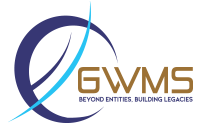Selecting the right business structure stands as a cornerstone decision for international entrepreneurs and investors. Whether establishing a new venture or restructuring an existing one, your choice significantly impacts taxation, liability protection, and operational flexibility. This comprehensive guide walks you through the essential steps to select the perfect business structure for your cross-border activities, helping you avoid costly mistakes and ensure long-term success.
Step 1: Identify your business needs and cross-border requirements
Before exploring different business structures, take time to thoroughly assess your business requirements. Understanding your specific needs forms the foundation for making an informed decision. Your international business activities, target markets and long-term objectives will significantly influence the most suitable structure for your organisation.
Consider your business’s core activities and how they align with different jurisdictional requirements. Are you primarily focused on Collective Investment Schemes (investment funds) investment holding, international trading or international consultancy professional services? Understanding your revenue streams, target markets and operational requirements helps narrow down suitable options. Factor in your funding sources, capital requirements, and plans for future expansion.
Cross-border requirements deserve particular attention. Different jurisdictions impose varying regulations on foreign businesses. Consider tax treaty benefits, substance requirements, and regulatory compliance across all relevant territories. Think about your need for double taxation avoidance agreements and how different structures might facilitate or hinder your international operations.
The Mauritius International Financial Centre has solidified its position as the definitive leader in fund domiciliation across Africa. The recognition is highlighted in the “Study on Africa as a Jurisdiction for Domiciliation of Investment Vehicles”, commissioned by the Mastercard Foundation and conducted by a consortium of renowned international finance and legal experts. The report, released on 4 December 2024, evaluated 13 African jurisdictions and underscores Mauritius’ unparalleled strengths in the sector.
Mauritius has been ranked as the only African jurisdiction to achieve the coveted status of an “Established Domicile”. Leveraging a well-defined evaluation framework, the report identifies Mauritius as Africa’s top-performing financial hub across four categories: Regulatory Framework Oversight & Enforcement, Judiciary Framework, Operational Efficiency, and Enabling Environment. Based on the report, the MIFC outperformed all other jurisdictions in each category, “symbolising stability, reliability, a trusted environment for international investors, and a strong role model for other African jurisdictions”.
Step 2: Research available business structures
In Mauritius, several structures serve international businesses: Global Business License Companies (GBC), Authorized Companies (AC), Trusts, Foundations, Variable Capital Companies (VCC), among others. Each offers distinct advantages and considerations for cross-border activities.
Global Business Licenses (GBC)
The GBC structure provides robust benefits for international operations. It offers access to Mauritius’s extensive network of Double Taxation Avoidance Agreements while requiring meaningful substance through local directors and office presence. GBCs particularly suit investment holding companies, international trading entities, and consultancy firms seeking tax efficiency and international credibility.
GBCs may be further licenced as investment funds, including VCCs, offering a flexible structure to pool funds from private placements. Mauritius provides fund managers and investors with a business-friendly environment that supports growth and stability. Additionally, the ease of repatriation of profits and capital enhances its appeal as a global fund domicile.
Authorized Companies (AC)
Authorized Companies present a streamlined alternative with reduced substance requirements. ACs are ideal for specific international transactions, investment holding where no tax treaty benefits are required and where operational flexibility takes precedence over tax considerations. This structure appeals to entrepreneurs seeking quick setup and minimal administrative overhead.
Trusts & Foundations
Trust & Foundation structures excel in wealth management, asset protection and philanthropic or charitable scenarios. They offer unparalleled flexibility for family offices and private wealth management as well as for international charitable objectives.The confidentiality and succession planning benefits make trusts & foundations particularly attractive for long-term wealth preservation strategies. Both vehicles can be structured in a highly tax-efficient manner, provided they are professionally and correctly established to align with legal, tax and regulatory requirements.
Step 3: Consult with experts for tailored advice
Professional guidance proves invaluable when selecting and implementing your business structure. Experienced advisors bring crucial insights into regulatory requirements, tax implications, and practical considerations specific to your situation. They help identify potential pitfalls and opportunities you might otherwise overlook.
Expert consultants assess your specific circumstances and provide tailored recommendations. They evaluate tax efficiency, regulatory compliance, operational requirements and risk management aspects of different structures. Their experience helps you avoid common mistakes and ensure your chosen structure aligns with both current needs and future goals.
GWMS is a licenced company administrator and a fund administrator and it offers comprehensive guidance through this process. We understand the nuances of different structures and how they apply to various business scenarios. Our expertise proves particularly valuable in navigating complex regulatory requirements and ensuring proper implementation.
Step 4: Implement the chosen structure
Implementation requires careful planning and meticulous execution. Success depends on attention to detail and proper documentation. Working with an experienced service provider like GWMS ensures smooth setup and compliance with all regulatory requirements.
The implementation phase involves several critical components. First, prepare comprehensive documentation meeting all regulatory requirements. Establish proper governance frameworks and internal controls. Set up robust accounting and reporting systems aligned with your structure’s requirements. Secure necessary licenses and permits, and implement compliance monitoring processes.
During implementation, maintain close communication with your service providers and regulatory authorities. Address any questions or concerns promptly to avoid delays. Ensure all stakeholders understand their roles and responsibilities within the new structure.
A company that intends to carry on global business and avail itself of the benefits of the Mauritius International Finance Centre in terms of the extended tax treaty network and investment protection network, amongst others, must apply to the Financial Services Commission (FSC) through a licenced management company, like GWMS, for a Global Business Licence or any other appropriate licence or authorisation.
Step 5: Regularly review and update as needed
Business environments evolve continuously, requiring periodic structure reviews and updates. Regular assessments help ensure your structure remains aligned with business objectives and compliant with changing regulations. Here’s how you can stay proactive in identifying and addressing potential issues before they become significant problems:
- Schedule periodic reviews to evaluate structure effectiveness and efficiency.
- Assess compliance with substance requirements and identify tax optimization opportunities.
- Monitor regulatory changes and their impact on your operations.
- Consider whether your structure continues to serve your business needs effectively or requires adjustments.
Maintain open communication with your service providers during these reviews. They can help identify necessary updates and implement changes efficiently. Regular reviews also provide opportunities to optimize operations and reduce costs while ensuring continued compliance.
Conclusion
Selecting and implementing the right business structure requires careful consideration and expert guidance. By following these five essential steps – identifying needs, researching options, consulting experts, implementing properly, and reviewing regularly – you can establish a structure that supports your business objectives while ensuring compliance and efficiency.
GWMS stands ready to guide you through this crucial process. Our experienced team provides comprehensive support in selecting, implementing, and maintaining the optimal business structure for your international operations. Contact us to discuss how we can help you navigate the complexities of cross-border business structuring and achieve your strategic objectives.













